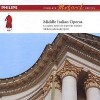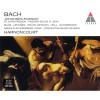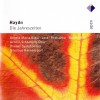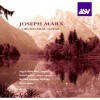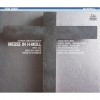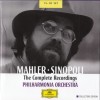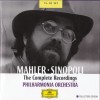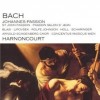| Голос/Инструмент: | Сопрано |
БИОГРАФИЯ
Angela Maria Blasi (Soprano)
Born: August 16, 1956 - Brooklyn, New York, USA
The New York born Italian-American soprano, Angela Maria Blasi, pursued her musical education and training in Los Angeles. In addition to earning a Bachelor of Arts degree from Loyola University she studied vocal technique and interpretation with teachers Dennis Parnell, Seth Riggs, Jack Metz and David Romano.
Angela Maria Blasi started her career in Andrew Lloyd Webbers Musical Evita touring the American West-coast between 1980 and 1982. After winning a prize in the Metropolitan Opera Competition she travelled to Europe and became a steady member of the Wiesbaden State Theatre in 1982. Already two years later she appeared as Pamina at the Teatro alla Scala di Milano and the Royal Opera House Covent Garden; she sang guest-performances in Hamburg, Frankfurt and at the Deutsche Oper Berlin followed by her Salzburg debut in 1985 as Pamina within the legendary production of The Magic Flute (conductor: James Levine, Stage-direction: Jean Pierre Ponnelle).
The same year Angela Maria Blasi joined the Bavarian State Opera where she was highly acclaimed for her interpretations of Micaëla in Georges Bizet’s Carmen, Musetta and Mimì in Puccinis La Bohème as well as Liù in Turandot. She also sang Regina in Paul Hindemith’s Mathis der Maler, Zdenka in Strauss’ Arabella, Norina in Donizetti’s Don Pasquale and Nedda in Leoncavallo’s I Pagliacci in Munich and of course also main characters in operas by Mozart: Pamina in The Magic Flute, Susanna in Le nozze di Figaro as well as Zerlina and Donna Elvira in Don Giovanni. In 1994 Angela Maria Blasi was honoured with the title of a ‘Kammersängerin’ by the Bavarian Ministry of Culture. In February 2000 she was highly acclaimed by both press and audience when singing the role of Marguerite in Charles Gounod’s Faust within a new-production of this opera at the same house (conductor: Simone Young. Munich will also see her as Juliette in C. Gounod’s Roméo et Juliette within another new-production next season.
Angela Maria Blasi is one of today’s leading lyric sopranos. Since her debut as Pamina, her international career has led her to the main European opera-houses and festivals such as Munich, Vienna, London, Milan, Florence, Hamburg and Berlin, before making her debut with the New York Metropolitan Opera - again as Pamina - in November 2000. The main emphasis of her repertoire are the works of Mozart and Puccini. She has been continously working with the conductors Gerd Albrecht, Herbert Blomstedt, Semyon Bychkov, Sir Colin Davis, Nikolaus Harnoncourt, James Levine, Lorin Maazel, Sir Neville Marriner, Zubin Mehta, Riccardo Muti, Antonio Pappano, Michel Plasson, Georges Pretre, Wolfgang Sawallisch, Giuseppe Sinopoli and Marcello Viotti.
Numerous opera-performances have made Angela Maria Blasi well-known in all parts of the world. Already in 1986 she was Pamina in Zurich, she sang Juliette in C. Gounod’s Roméo et Juliette at Washington Opera in 1987, appeared as Zdenka in a new-production of Arabella at the Deutsche Oper Berlin in 1989 and she sang both Susanna in Los Angeles and Mélisande in Debussy’s Pelléas et Mélisande at Bonn Opera in 1990. The same year she was also heard in the role of Aminta in Mozart’s Il re pastore at Salzburg’s Mozart-Week; this production with the Academy of St. Martin in the Fields under Sir Neville Marriner was also recorded for CD, TV and video.
Between 1988 and 1994 Angela Maria Blasi sang the operatic parts of Pamina, Susanna, Musetta and Zdenka at the Vienna State Opera, she was heard as Liù at Grand Théâtre du Geneve in 1996 and sang her first Donna Anna in Mozart’s Don Giovanni at Würzburg Mozart-Festival 1997. In 1998 she had a great personal success when singing Mimì in a new-production of Puccini’s La Bohème at Maggio Musicale Fiorentino (stage-direction by Jonathan Miller) as well as when performing Liù at the first opera-performances ever at the Forbidden City of Beijing; Puccini’s Turandot was staged at the original location of the plot as a series of guest-performances of Teatro Comunale di Firenze under the musical direction of Zubin Mehta.
Angela Maria Blasi is also highly respected as an outstanding concert-soloist. Mozart’s, Johannes Brahms’ and Verdi’s Requiem belong to her main repertory as well as Bach’s Passions, Haydn’s oratorios, Richard Strauss’ Vier letzte Lieder, Bruckner’s f-Minor-Mass and Gustav Mahler’s symphonies, and works by Beethoven, J. Brahms, Chausson, Rossini, and Verdi. Many video- and CD-productions demonstrate the versatility of this artist.
Angela Maria Blasi can be heard on studio-recordings for the labels Telefunken (Bach’s Mass in B minor (BWV 232) and Haydn’s The Seasons conducted by Harnoncourt), Teldec (Bach’s Johannes-Passion (BWV 245) and religious music by Mozart with Harnoncourt), RCA (Mozart’s Requiem and G. Mahler’s Symphony No. 4 under Colin Davis), DGG (G. Mahler’s Symphony No. 8 under Sinopoli) and FNA (Verdi’s Messa da Requiem under Michel Corboz). Furthermore she has recorded Mozart’s opera Il re pastore with Sir Neville Marriner for Philips and Musetta in Puccini’s La Bohème with James Conlon for Erato; the last-mentioned production was also published in a film-version directed by Luigi Comencini.
Aside from many opera-engagements Angela Maria Blasi also performed in numerous concerts within the last years, f. e. G. Mahler’s Symphony No. 8 both with Lorin Maazel at the Vienna State Opera and with Giuseppe Sinopoli at London’s Royal Albert Hall, Beethoven’s Missa Solemnis with Hugh Wolff in Frankfurt, Karlsruhe and Copenhagen, G. Mahler’s Symphony No. 4 with Lorin Maazel and the Israel Philharmonic Orchestra in Osaka and Tokyo and G. Mahler’s Symphony No. 2 with Philippe Auguin in Nürnberg. She appeared recently in concerts in Luxemburg, Brussels, Cologne, London, Paris, Vienna, Zürich, Leeds, Lisbon and Athens singing music by Schubert, Schumann, Rossini, Beethoven, J. Brahms, Strauss, G. Mahler, Chausson, Barber, Leonard Bernstein and Weill for radio-broadcasts and CD-releases as well.
Within the last years Angela Maria Blasi was Pamina, Mimì, Nedda, Micaëla and - with spectacular success - Marguerite in Munich. She made her debut with both the Théâtre Royal de La Monnaie in Brussels (as Micaëla) and with the New York Metropolitan Opera (as Pamina) where she recently reappeared as Musetta. She had greatest success with French opera-repertory in a Munich benefit-concert under Zubin Mehta. Angela Maria Blasi also sang the role of Alice Ford in Verdi’s Falstaff for the first time in hecareer at the Hamburg State Opera and appeared at the Dresden State Opera as Mimì. She was ‘Angela’ within the highly acclaimed concert-performance of Kurt Weill’s The Firebrand of Florence opposite to Thomas Hampson and under Dennis Russel Davies’ direction at the Vienna Konzerthaus and she appeared as Nedda again at Brussels’ La Monnaie.
The recent opera-seasons Angela Maria Blasi’s repertoire contained again new operatic roles: She sang the role of Conception in Ravel’s L’heure espagnole for the first time at the Brussels La Monnaie followed by her first Ellen Orford in Britten’s Peter Grimes at the Opéra de Montpellier and her first Cio-Cio San in Puccini’s Madama Butterfly in Sydney, for which was celebrated with standing ovations. However there are further new challenges in the field of opera set for the future: For example the artist will make her debuts as Agathe in Weber’s Der Freischütz (in Montpellier January 2004). Munich will hear her within a new-production of C. Gounod’s Roméo et Juliette (May 2004), Covent Garden in Puccini’s La Bohème (April 2003 / June 2005).
Произведения
Произведения композиторов
Йозеф Маркс
Joseph Marx – Orchestral songs, »Verklärtes Jahr« (Blasi, Doufexis; Sloane)Вокально-симфоническая музыка


